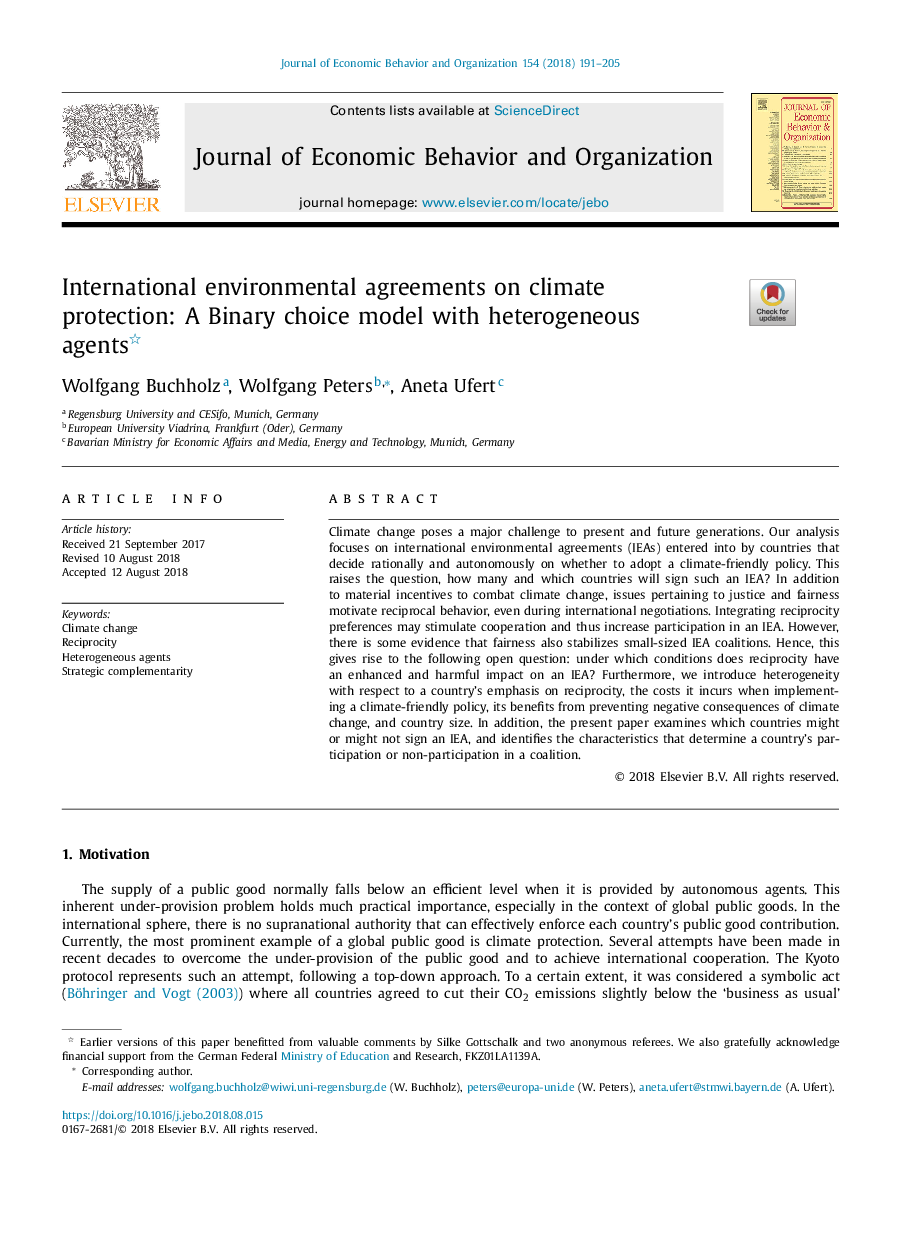| Article ID | Journal | Published Year | Pages | File Type |
|---|---|---|---|---|
| 10127596 | Journal of Economic Behavior & Organization | 2018 | 15 Pages |
Abstract
Climate change poses a major challenge to present and future generations. Our analysis focuses on international environmental agreements (IEAs) entered into by countries that decide rationally and autonomously on whether to adopt a climate-friendly policy. This raises the question, how many and which countries will sign such an IEA? In addition to material incentives to combat climate change, issues pertaining to justice and fairness motivate reciprocal behavior, even during international negotiations. Integrating reciprocity preferences may stimulate cooperation and thus increase participation in an IEA. However, there is some evidence that fairness also stabilizes small-sized IEA coalitions. Hence, this gives rise to the following open question: under which conditions does reciprocity have an enhanced and harmful impact on an IEA? Furthermore, we introduce heterogeneity with respect to a country's emphasis on reciprocity, the costs it incurs when implementing a climate-friendly policy, its benefits from preventing negative consequences of climate change, and country size. In addition, the present paper examines which countries might or might not sign an IEA, and identifies the characteristics that determine a country's participation or non-participation in a coalition.
Related Topics
Social Sciences and Humanities
Economics, Econometrics and Finance
Economics and Econometrics
Authors
Wolfgang Buchholz, Wolfgang Peters, Aneta Ufert,
